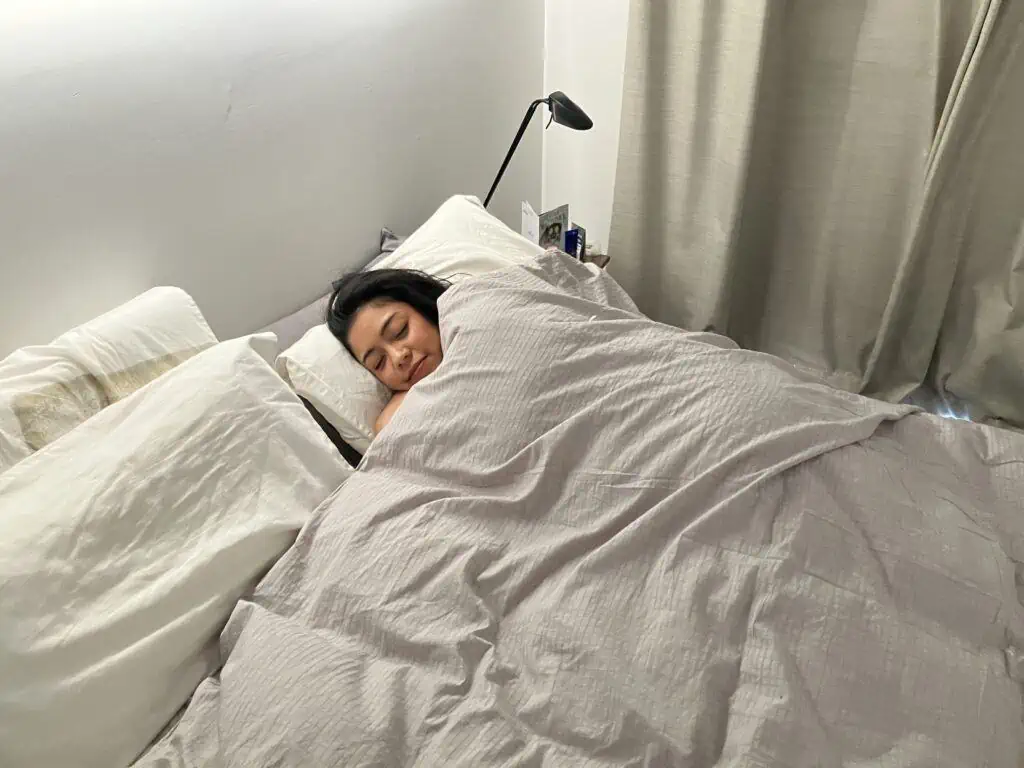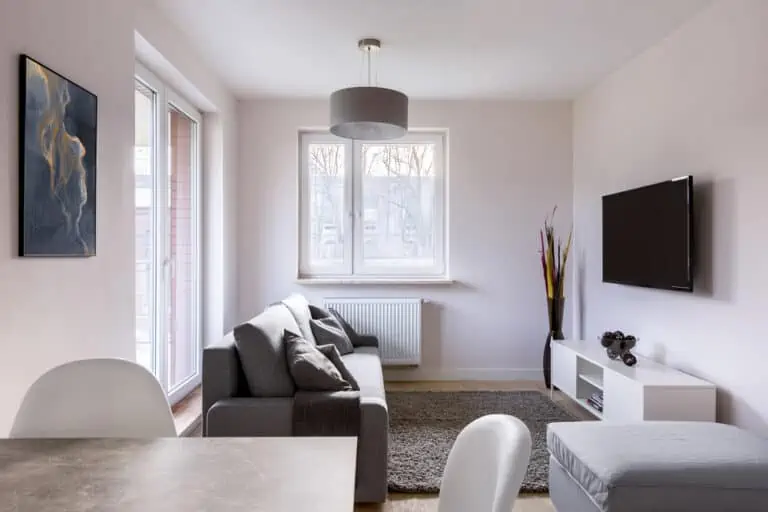How I’ve learnt to embrace my inner laziness While Working Towards My Goals
Homebody Forever is reader-supported. We may receive a commission if you make a purchase through a link on this post.
You know how some people associate their college and twenties with fun times, being carefree, and not worrying too much about the future because they were too busy living their best lives? No? Me neither.

Now, my twenties weren’t bad, and I did a lot of things that I am proud of. I moved countries, changed careers, got married to the love of my life, travelled to some pretty cool places, and met some all sorts of interesting people.
But I was also constantly stressed and addicted to external achievements. I couldn’t sit still to save my life, let alone spend a day relaxing and doing nothing (oh, how times have changed). It was a never-ending cycle of working until the point of near burnout, and then my body will inevitably protest by way of cold-symptoms and physical exhaustion. That’s when I would finally be able to rest, because my body literally forced me to.
Fast-forward to my early thirties, and let’s just say a number of personal situations (exacerbated by the pandemic) forced me to re-evaluate and make changes in my life. Like most people, I chose to slow down, gave myself permission to rest and boy did I need it. I went from worshipping at the altar of hustle culture to being allergic to words like ‘ambition’ and ‘optimization.’
Now at 35, I realize that I like to live in between. I still have big goals for my life that I want to achieve and am working towards, but I don’t put a time limit on when I need to achieve it.
Here are some practices that have helped me embrace my inner laziness as a recovering workaholic and perfectionist, while still, you know, get stuff done.
Set myself a ridiculously small goal each day
I don’t know about you, but at the height of my workaholic perfectionistism, I set myself big goals on a daily basis. I was determined that if I just planned out every hour in my calendar, I could get everything done.
Except I didn’t. Because I didn’t account for distractions and interruptions (which is kind of inevitable if you work in an office, or if you’re a daydreamer like me), or unexpected (but totally normal) day-to-day life events that forces you to abandon your color-coded calendar. I also didn’t think about energy management. Some things just take up more emotional and mental energy than others, and I hadn’t accounted for that.
Looking back, I actually would accomplish a lot in a day, but because they fell short of my expectations, I would end my day feeling like a failure. Nowadays, I set myself a ridiculously small goal every day and adopt a slow and steady (but consistent) approach to work. I no longer think about how much I did that day, but focus on doing the things that will move me just that much closer to my long term goals (and not worry on doing the things that don’t). And if I still have energy to do more than what I set out? Great! Either way, I go to bed feeling happier and at peace rather than a total failure.
Prioritize my work (and ‘Should’ Tasks) around my self-care practices
I used to prioritize everything around my work and ‘should’ tasks (you know, boring life admin and errands that make up being an adult). I didn’t realize it at the time, but I also used to view self-care as something that would enhance my productivity, rather than, you know, keep me a sane and happy person.
Now, I’ve been extremely privileged to have built a career where I can now work for myself and are largely in control of my time. So I organize my days prioritizing my self-care non-negotiables, and fitting my work and should tasks around that. The most important practice? Sleep.
I no longer set an alarm unless I have a scheduled meeting or call, and if I do and have to cut my sleep time short then I will end my day early so I can go to bed earlier. Maybe it has to do with age, but my body can no longer rely on caffeine to compensate for sleep-deprivation.

Take a 30 Minute Nap In the Middle Of The day
Speaking of sleep, I am one of those people that have always had extremely bad 3 p.m. slumps ever since I can remember. And before you tell me that I can just go for a walk or not have carbs for lunch or splash cold water on my face or regulate my blood sugar, believe me, I’ve tried. While some of those practices can make my slump not as bad, they don’t completely eliminate it. When I was in an office, I would just have to fight through that dead zone until the sleepiness passed (usually around 4.30 p.m.).
When I started working for myself, I succumbed to my slump and gave myself permission to take a 30 minute nap in the middle of the day. No, I don’t time it, I just always seem to wake up after 30 minutes. And my god, the energy and focus it gives me afterwards!
Now, this isn’t a tip that will work for everyone. My husband, for example, gets super groggy after naps of any duration and is always perplexed when he sees me typing furiously right after I wake up from them. But if you suffer from the afternoon slump and nothing has worked? Giving in to it might just be the thing that can help.

Outsource tasks that give me a lot of stress, as much as I can
The unfortunate part of adulting is that it from time-to-time, we have to do things that we don’t want to do. And sometimes there’s no way to avoid it (for example, I cannot get someone else to pay my tax bill, as much as that would give me a great deal of joy).
I can however, pay an accountant to file my taxes, and I do just that. And when budget allows, I will pay for someone else to clean my house, because I find cleaning the opposite of therapeutic, and so does my husband. The same goes with washing and vacuuming my car.
This goes back to my earlier point about energy management. Some things just take more energy than others, and as a freelancer/entrepreneur juggling multiple things, I need to make sure that I don’t deplete it doing too many things I don’t enjoy.
Do the things that I want to relax, rather than what I feel I should do
As a former self-improvement addict, I used to struggle to relax or do an activity that I didn’t consider ‘productive’. For example, I mostly used to read work-related non-fiction books (see image above) even though nothing relaxes me more than a getting lost in a cheesy romance novel. On weekends, I’d force myself to go to events or do some sort of activity, even when my body and mind just wants to eat pancakes in bed and have a cozy day in.
Now, I opt for activities that I find truly relaxing. Some days, that means going out for a hike or playing around on my piano. Other days, it’s re-watching (or re-reading) Bridgerton for the millionth time. Sometimes that’s taking the time to cook an elaborate meal or putting on a sheet mask while watching get ready with me videos.
The point is, relaxing can mean different things for everyone, and sometimes, different moods and energy levels call for different activities. Self-improvement culture has this way of assigning ‘worth’ to certain activities, when the whole point is that you feel rejuvenated after doing it.
The funny thing is, the less I pressured myself to do engage in ‘productive’ hobbies, the more I naturally want to do those things because I have the energy. The more I pressure myself to those things, the more stress I attach to the activity, making me want to avoid it because it sucks up energy.
Now, just like the napping situation, I’m well aware that this advice doesn’t work for everyone. Some people need to do an activity to fully decompress, or if they want to pick up a hobby that requires learning, they need to do it every day or else they’ll never do it.
But if you’re the type to gravitate towards self-improvement, and your problem is not with doing, but resting, it might be worth trying this tip. You might just find yourself falling in love with the hobbies that stressed you out in the first place.






